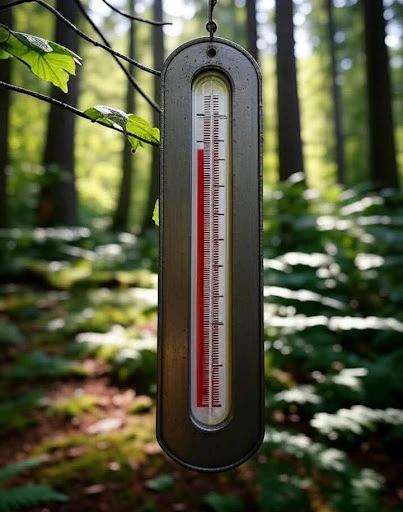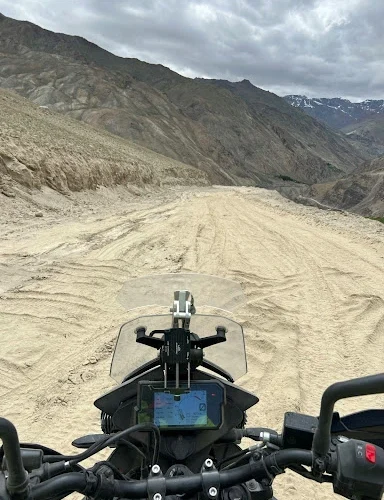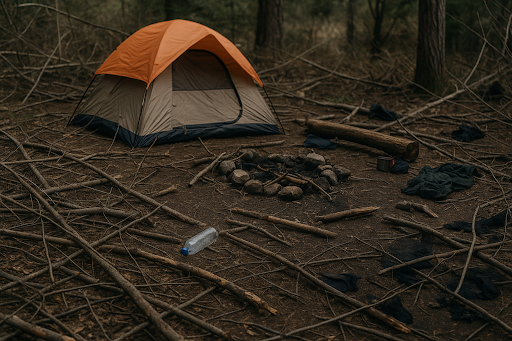Picture this: you’re halfway up a sun-scorched trail in the Rockies, your phone’s your lifeline for navigation, and suddenly it’s hotter than a cast-iron skillet. The screen dims, the GPS lags, and-poof-it shuts down. Welcome to the North American heatwave of 2025, where triple-digit temps are testing more than your hydration plan. We’re used to babying our electronics in winter’s deep freeze, but summer’s blaze can be just as brutal. This article talks about how extreme heat messes with your gear and how to keep your tech from becoming a casualty of the great outdoors.
Table of Contents
Why Heat and Electronics Don’t Mix
Electronics are like finicky trail buddies-they thrive in a narrow comfort zone. High heat, like the 100°F-plus days rocking the continent right now, pushes them past their limits. Smartphones, GPS units, action cameras, even your trusty smartwatch-they’re all at risk when the mercury climbs.
Heat hits hardest on lithium-ion batteries, which power most of our gadgets. Above 95°F, batteries degrade faster, lose charge quicker, and, in rare cases, swell up like a bad blister. Processors, too, can overheat, slowing your device to a crawl or triggering an emergency shutdown. Ever had your phone go black mid-photo? That’s the heat saying, “I’m done.”
Screens aren’t immune either. Prolonged sun exposure can cause discoloration or glitchy touch response. Worst case? Internal circuits fry, turning your $800 device into a fancy paperweight. For outdoor folks, this isn’t just inconvenient-it’s a safety issue. A dead GPS in the backcountry or a kaput phone when you need to call for help can turn a fun trip into a survival saga.

The Heatwave’s Extra Sting
Hikers, campers, and overlanders are leaning hard on electronics for navigation, weather updates, or capturing that epic sunset shot. But when your drone overheats mid-flight or your camera stalls during a kayak trip, you’re not just losing memories-you’re losing tools. The hotter it gets, the more you need to play defense with your tech.
Let’s break it down. Here’s what extreme heat does to your gear:
- Batteries Take a Beating: High temps speed up chemical reactions in lithium-ion batteries, cutting their lifespan and capacity. At 104°F, a battery can lose 20% of its charge faster than at 77°F. In extreme cases, heat causes swelling or, rarely, a dangerous thermal runaway.
- Performance Tanks: Devices throttle performance to cool off, making apps sluggish or freezing your navigation mid-route. Many gadgets auto-shutoff above 113°F to avoid damage.
- Physical Damage Creeps In: Heat can warp components, loosen adhesives, or crack screens. Ever left a phone on a car dash? That’s a recipe for a melted mess.
- Data’s at Risk: Overheating can cause glitches, corrupting photos or maps. Imagine losing your trail data in the middle of nowhere.
Significant damage to your electronics can result from prolonged heat exposure so you’ll need to balance how you use them in order for them to work properly.

Keeping Your Tech Cool: Practical Tips
You don’t have to ditch your gadgets to survive the heatwave. With some smart moves, you can keep your tech humming. Here’s how:
- Shade Is Your Friend: Never leave devices in direct sun or a hot car (where temps can hit 140°F in minutes). Stash them in a shaded backpack pocket or a ventilated gear bag.
- Insulate It: Use a thermal-protective case or a small cooler bag (without ice-moisture’s another enemy). For drones or cameras, a padded case with ventilation works wonders.
- Avoid Traps: Don’t bury your phone at the bottom of a packed bag-trapped heat is as bad as sunlight.
- Limit Sun Exposure: Take photos or check maps in the shade. If your device feels hot, give it a breather.
- Cut the Extras: Turn off Wi-Fi, Bluetooth, or high-brightness settings to reduce heat buildup. Lower screen brightness or use auto-brightness to ease the load.
- Watch the Warning Signs: If your phone flashes a “too hot” alert or lags hard, power it down and move it to a cooler spot.
- Cool It Down Safely: If a device overheats, turn it off and move it to a shaded, dry spot. Let it rest for 10-15 minutes. A breeze helps, but don’t force it with fans or compressed air.
- Don’t Do This: Never dunk a hot device in water or toss it in a fridge. Rapid cooling can cause condensation or crack components.

Final Thoughts
Summertime is undoubtedly hot, but it doesn’t have to fry your tech. By understanding how heat hits electronics-batteries, performance, and all-you can take steps to keep your gear in the game. Store smart, use wisely, and pick rugged equipment, and you’ll be snapping epic shots and navigating trails without a hitch. And for the toughest outdoor gear, check out Everest.com to gear up for whatever Mother Nature throws your way.









